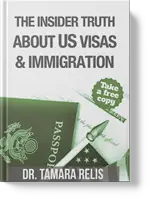
The Violence Against Women Act (VAWA) is a federal law providing an avenue for abused individuals (women or men) to seek U.S. legal status. Normally, a non-citizen close family member without legal status must rely on the citizen or lawful permanent resident (LPR) family member to obtain legal status. This arrangement becomes untenable when the citizen or LPR inflicts extreme physical, emotional, or psychological harm on the individual seeking legal status.
In these cases, individuals may choose to self-petition for legal status under VAWA. A self-petition is an application for legal status that is not dependent on another person or entity. After getting approved for legal status under VAWA, individuals are usually free to apply for a green card (lawful permanent status).
Which Family Members Are Eligible?
Spouses and children of U.S. citizens or lawful permanent residents (LPRs) are qualified family members in the context of VAWA self-petitions. Children of the abused citizen or LPR must be unmarried and younger than 21 or, in certain cases, younger than 25 (if the application’s delay was directly caused by the abuse). Parents of abusive U.S. citizens are eligible for VAWA legal status, but parents of abusive LPRs are generally not eligible.
Most self-petitioners may apply for temporary legal status for their children younger than 21. Divorceés may self-petition if the marriage was terminated within two years of the VAWA application and directly resulted from the abuse. The same time frame applies to widowers.
What Are the Other Qualifiers?
Besides showing that you are a qualified family member of the citizen or LPR abuser, self-petitioners must have good moral character. The term the U.S. Citizenship and Immigration Services (USCIS) uses for qualifying abuse is battery or extreme cruelty. Your attorney will be able to help you provide sufficient documentation of the abuse.
Some other qualifiers exist based on the particular relationship between the abused and the abuser. Spouses or former spouses of abusers must prove the marriage was bona fide. Spouses and children of abusers must also have lived with the abuser.
Which Forms Are Needed?
The initial VAWA self-petition is Form I-360, which must be filled out and submitted with proper documentation. Once Form I-360 is approved, VAWA self-petitioners may submit Form I-765, which is employment authorization. Depending on several factors, VAWA self-petitioners may apply for lawful permanent status (green card) at the same time. In other cases, individuals must wait several years before applying for a green card.
Conclusion
We understand how fearful it is to be abused and without legal status in the U.S. The VAWA self-petitioning system provides a safe harbor for plenty of non-citizens and non-LPRs. Having an immigration professional guide you through the application process, though, is essential. RelisLaw has been helping individuals gain legal status in the U.S. for decades and would be happy to help you. Contact our team today for a free 15-minute phone consultation.
RelisLaw
Latest posts by RelisLaw (see all)
- Protect Your American Dream: Your Legal Shield in the New Immigration Era - January 23, 2025



